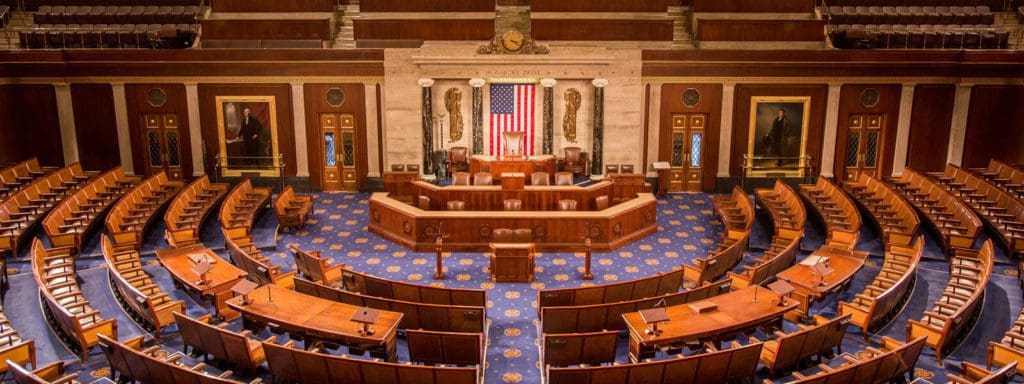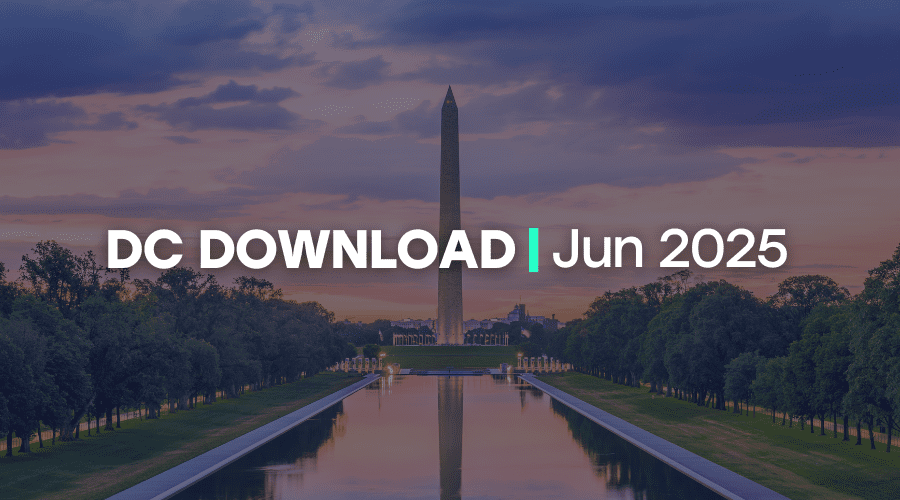The year 2021 has a lot riding on it. Maybe that amount of pressure isn’t fair, but such is life when you are following up a clunker like 2020. Across the country, Americans are pinning their hopes for the year on good health, improved finances, a functioning democracy, and maybe even a summer vacation?
From a public policy perspective, the needs of nonprofits and the people they serve are no less significant. Last year, our sector faced profound disruptions in service delivery combined with lost revenue, all amidst surging need in the community. With continued job losses and the pandemic still raging, nonprofits are counting on 2021 to be a year of 4 “Rs.” (Spoiler alert: “rest” and “relaxation” are not featured.)
Relief
In terms of policy victories, 2020 was a banner year for nonprofits. Congress structured key tax credits for employers as payroll tax credits, which allowed tax-exempt organizations to benefit. Policymakers also created an above-the-line charitable deduction for the first time in decades, and included nonprofit eligibility when designing the year’s most notable employer assistance effort — the Paycheck Protection Program.
Yet despite heroic advocacy and signs of progress, policymakers have simply not provided the kind of relief that is essential for charitable nonprofits to serve those in need. Last week, Independent Sector joined 75 nonprofits in asking congressional leadership and President Biden to act on this relief quickly, or else see Americans nationwide deprived of the food, shelter, education, health, and inspiration that they so desperately need. Specifically, the letter calls for emergency financial assistance, stronger charitable giving incentives, enhanced unemployment benefit reimbursement, and aid to state and local governments. While it is imperative that Congress and the President deliver this relief quickly, we are committed to fighting for it until the job is done.
Recovery
Weathering this crisis will be a daunting task for many nonprofits and for civil society as a whole, but it will not be enough. The Biden campaign and administration have spoken often about the need to “Build Back Better” in a way that reshapes for the better our society, our infrastructure, and our economy. As policymakers pivot to that body of work, Independent Sector and the Nonprofit Infrastructure Investment Advocacy Group will advocate forcefully that infrastructure is more than just roads and bridges. It includes the organizations that form our civic and community infrastructure as well.
While the policy priorities associated with this work are broad, many of them have already gained traction in COVID-19 relief legislation or in House-passed infrastructure legislation last year. During 2020, we saw helpful policy enacted on priorities like child care stabilization, broadband affordability, postal service solvency, and more. In addition to these areas, some other high priorities that seem ripe for further legislative action include transit funding, housing, and home energy assistance.
Representation
Nonprofit policy advocates spent a lot of their time in 2020 becoming intimately familiar with the Small Business Administration because it was the agency tasked with implementing the Paycheck Protection Program. While that eligibility was an important victory, there have been many bumps in the road toward implementation as the sector and the agency get to know each other better. At the same time, the nonprofit sector is an essential implementer of federal programs, and a critical partner for any president with big ambitions. Despite these circumstances, there exists no natural home within the federal government for our sector and its roughly 12 million jobs. In November 2020, Independent Sector delivered a memorandum to the Biden-Harris transition team outlining this grave discrepancy, and suggesting options for a structure that could facilitate partnership with the charitable and philanthropic sector. This would be a policy victory in its own right, as well as a force in future policy discussions. We have been making the case for such a structure with the new administration and with key allies on Capitol Hill, and will continue to do so.
Regulation
In addition to making progress through legislation, any incoming presidential administration also looks to advance its agenda through regulatory and executive action. Treasury Secretary Janet Yellen declined to offer many specifics when asked during her confirmation process about the potential for new regulations on donor-advised funds, but this space bears watching with philanthropist John Arnold and Boston College Law Professor Ray Madoff advocating for significant changes. Meanwhile, some segments of the nonprofit sector – including health, education, housing, foreign affairs, and Native American organizations – have already seen executive action in the administration’s first week.
If an existing legislative prohibition can be removed from appropriations law (there’s another R-word: “rider”), the Biden Administration could deliver a major regulatory victory for the sector by advancing the Bright Lines Project. This commonsense proposal would clarify the arcane rules surrounding what types of election and advocacy activity nonprofits may engage in without risking their tax-exempt status. In doing so, it could eliminate the opportunity for bad actors to exploit gray areas and get well-intentioned nonprofits off the advocacy sidelines.
Rollercoaster
Did we say 4 Rs? Here’s a reminder that at this time last year we were expecting a marginally productive, status-quo year and we still knew where to find our suits and dress shoes. The nonprofit sector can never know exactly what is around the next turn, but it is Independent Sector’s honor to be on this ride with you.



